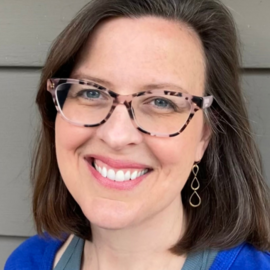Late-Breaking: ITHAKA S+R on Collaborative Collection Development
New Report Published August 1, 2024
Brief Summary

In light of legitimate constraints on space and budgets, libraries have created networks to maximize regional access to their holdings. This latest report from Ithaka S+R documents discussions with 50 individuals who are currently engaged in the management of collaborative collections and associated issues with that work. Conversations centered on current collaborative models in place, lessons learned thus far, and insights from various engaged stakeholders. Supported by an IMLS-funded grant, the research fuels the efforts of NISO Working Group members engaged in the Collaborative Collections Lifecycle Project. That project has as its focus the development and deployment of recommended practices, tools and other resources for libraries seeking to enhance efficiencies and usage of shared collections. Governance and Business Models for Collaborative Collection Development is an important step in moving forward.
This project was made possible in part by the Institute of Museum and Library Services National Leadership Grant 2022 (LG-252384-OLS-22).
To be effective, library collaborations focused on collection development need to be responsive to the changing landscape of scholarly resources as well as the evolving nature of research, teaching, and learning. The purpose of this report is to further increase our understanding of the governance and business characteristics of collaborative collection development initiatives, and how the attributes of different business models can affect the outcomes of collaborations.
Investigators organized their findings into two sections looking at (1) the management and governance of collaborations and (2) the needs, engagements and priorities of partnering organizations. The focus was on “how collaborations start, evolve, function, engage members, and are sustained over time.”
The specific collaborative groups with whom Ithaka S+R consulted in this work include:
- Eastern Academic Scholars’ Trust (EAST)
- HathiTrust
- Ivy Plus Libraries Confederation (IPLC)
- Ontario Council of University Library (OCUL)
- Open Researcher and Contributor ID (ORCID)
- Triangle Research Libraries Network (TRLN)
- Virginia’s Academic Library Consortium (VIVA)
Additionally, with a view to considering collection development collaborations in the context of specific area studies, the investigators spoke with representatives from:
- Center for Research Libraries Global Collections, Southeast Asia Materials Project
- Committee on Research Materials on Southeast Asia (CORMOSEA)
- Library of Congress Cooperative Acquisitions Program for Southeast Asia
Collaborations need to have agile governance and business models in order to sustain the engagement of member organizations and respond to the changing landscape of scholarly resources, service models, and user needs. Given the prevalence of academic library collaborations, it is important to assess their contributions within the context of the new collections lifecycle, especially to understand how they can remain responsive to the evolving nature of research, teaching, and learning. Also critical is being able to differentiate collaborations to create synergies through collective work and reduce unnecessary administrative redundancies.
The report’s conclusion highlights nine attributes of successful collaborations with specific regard to governance and business models.
The full text of the report may be found here. A downloadable PDF is also available.
The Collaborative Collection Lifecycle Project is led by National Information Standards Organization (NISO), Partnership for Academic Library Collaboration & Innovation (PALCI), and Lehigh University Libraries.
Bergstrom, Tracy, et al. "Governance and Business Models for Collaborative Collection Development." Ithaka S+R. Ithaka S+R. 1 August 2024. Web. 2 August 2024. https://doi.org/10.18665/sr.321102
